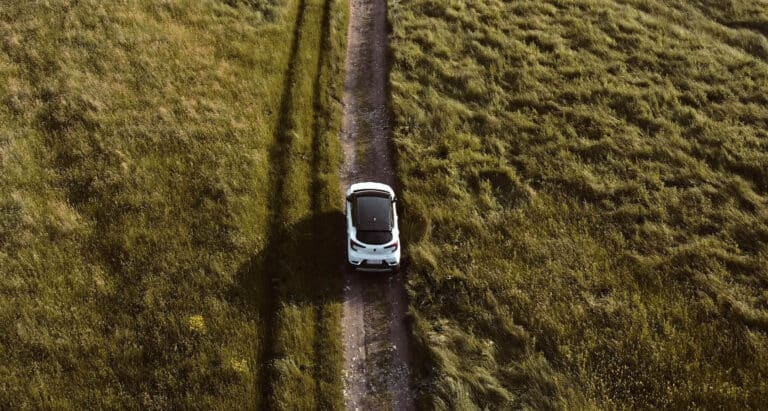CrowdComms was the first event technology company to join isla, the industry body supporting the event sector’s transition to a more sustainable future, and we are proud to stand amongst many other prominent brands committing to sustainable practices. Part of our commitment to sustainability is to look closely at our transport and logistics to see where we can make positive changes, the first being to weigh up the benefits of electric transport.
In today’s article, Alex Lewis Jones, Director at Other Way transport and climate change consultancy, sets out the essential elements to bear in mind when considering electric vehicles over petrol or diesel equivalents.
Filled with his expertise and insight, this 5-minute read is essential to anyone thinking about making the leap to an EV.
You may have seen articles recently exploring the carbon footprint of food. Oat milk is better than dairy milk. Hot chocolate is better than tea. Everything is better than a beef steak.
It’s not just food. Every aspect of consumption is now being considered under the carbon footprint lens. You can even check out the carbon footprint of your website. So, which decisions could we make that will have the greatest impact?
With the transport sector as the leading and growing source of emissions in the UK, the car has become a key focus area for climate action. It is the gases coming from around 30 million exhaust pipes in the UK that make up most of transport’s contribution to climate change.
Step in electrification – a way of moving people and things about without the exhaust pipe. The electric car has become an icon for climate solutions across the media.
And this is not all just talk. Switching to electric is moving from a niche decision to a mainstream one. September 2022 saw the one-millionth electric car registered in the UK. A recent study found that 64% of drivers will be considering electric as their next car.
It’s a big personal decision, so how big an impact will it have on your carbon footprint?

A zero-emissions vehicle does not have zero carbon footprint
Electric cars are often referred to as “zero emission”. In fact, the part of the UK Government responsible for their development is the Office for Zero Emission Vehicles.
By “zero emission” in this context we refer to the transport emissions, or tailpipe emissions, and includes both air pollutants and greenhouse gases. This is the specific challenge that the Office for Zero Emission Vehicles is responsible for tackling.
However, in order for that car to exist, and move people and things around, several other sectors will emit greenhouse gases. It is easiest to summarise this in three phases of the car’s lifespan.
Building it: producing a car requires intensive mining, processing and global transportation. This is amplified by the extensive requirement for rare earth elements in the battery.
Using it: producing the electricity that the car runs on comes with greenhouse gases as well. Supporting the recharging network and the maintenance of the cars also have impacts.
Scrapping it: the processes of dismantling and preparing the car for recycling or waste are typically energy intensive and may have greenhouse gases attached too.
Comparing apples with apples
So, will this be my greenest-ever decision? It depends.
While academic research shows the trend, none of them tell you how much impact you personally would have by switching. There is a big difference between the average car and your actual car.
So, how can I work out whether switching to electric even makes sense for me?
Other Way has launched a web app called Climate Wheels. It’s the first carbon footprint calculator for the transition to electric cars in the UK. By entering a few quick details about your current car and the electric car you are thinking about, Climate Wheels gives you a personal carbon footprint story.
It tells you if the electric car is better, and breaks that carbon footprint down to the same three phases we discussed earlier. It even gives you a “break even date”: the time when you will have paid off that up-front carbon debt of the build phase emissions of the electric car.
For an example, I took a typical car on UK roads today (I chose a petrol Ford Fiesta from 2013) and compared that to a close equivalent EV purchasable today (a Vauxhall Corsa-e).
This resulted in 13t of greenhouse gases avoided. That’s certainly going to be one of the biggest impact from a single decision.

For perspective, that’s the equivalent carbon footprint of eating a beef steak for your lunch every day for three years and eight months. Or 141 years of your daily cup of tea.
Give Climate Wheels a spin and you find out how much impact you could have with the switch to electric.
Alexander Lewis-Jones is a Director at Other Way, a transport and climate change consultancy. Alex has been providing advice on the transition to low carbon and electric transport for the last eight years. Other Way helps businesses to calculate, cut and communicate the climate impact of their travel. For further information about Other Way’s services, visit their website.





